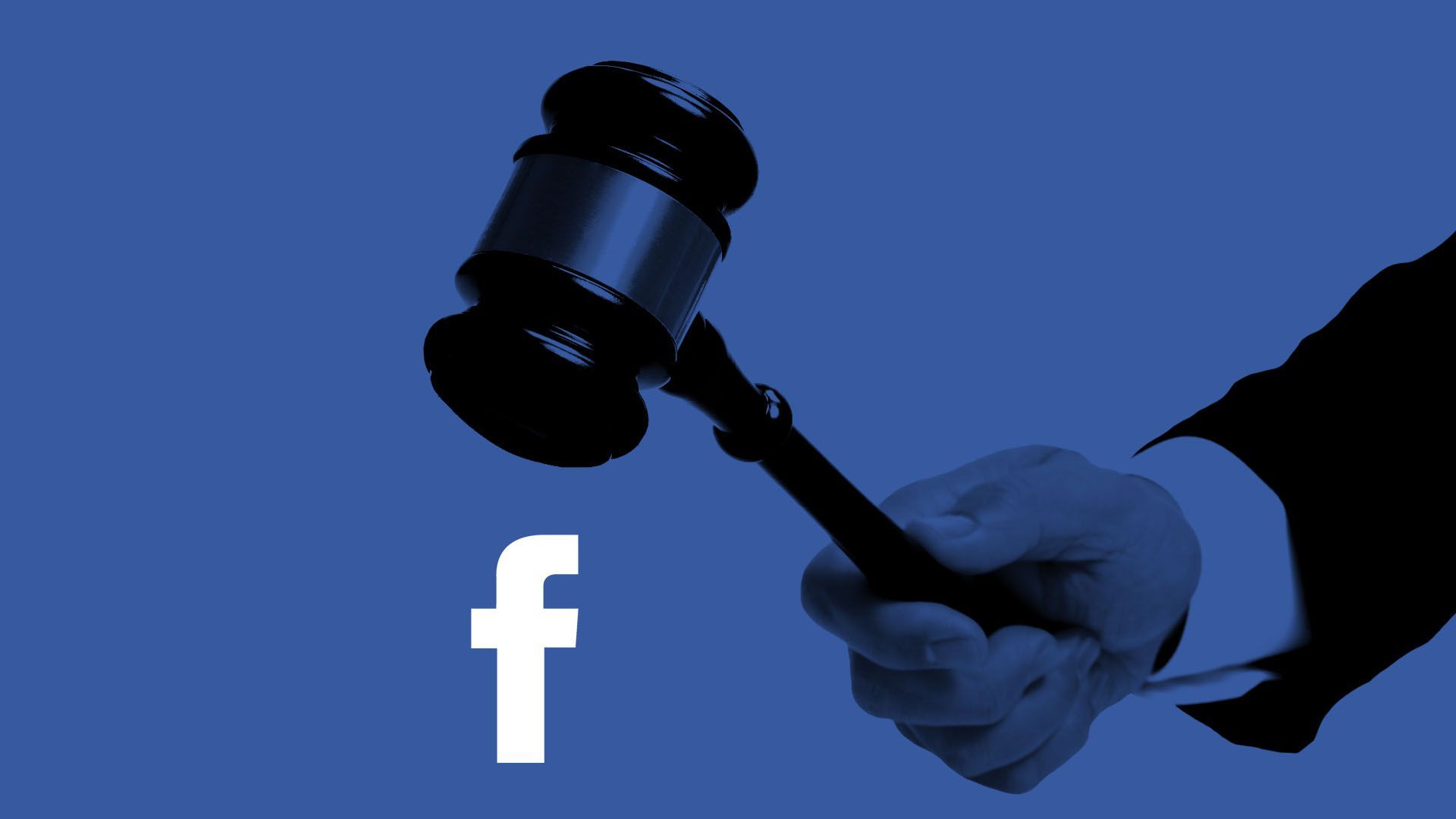The FTC's preemptive strike on Facebook
Add Axios as your preferred source to
see more of our stories on Google.

Illustration: Sarah Grillo/Axios
News that the Federal Trade Commission is weighing immediate action to block Facebook's effort to integrate its messaging products casts a pall over the company's plans, whether or not regulators actually follow through.
The big picture: CEO Mark Zuckerberg announced in January, 2019 that Facebook would integrate the technical foundations of its messaging services — Facebook Messenger, WhatsApp, and Instagram.
- Facebook described the plan as motivated by engineering and business concerns, but critics noted that it would set roadblocks for any future effort to break Facebook up by unwinding its acquisitions of WhatsApp and Instagram.
Driving the news: The Wall Street Journal reported late last week that the FTC was considering seeking a preliminary injunction to bar Facebook from proceeding with its integration plan.
- The FTC has not commented publicly.
- It's much more difficult for regulators to unwind a completed acquisition than to block one that's still in progress, but this year the FTC has specifically noted it can be done.
- "The Commission is committed to ensuring competitive markets for the benefit of consumers, and there will be times when it has to act after a merger has been consummated,” FTC Chairman Joseph Simons said in announcing a move this fall to undo an acquisition by prosthetic knee-seller Otto Bock.
Where it stands: The FTC would have to ask for an injunction against Facebook in federal court, and demonstrate to a judge that harm to consumers is likely if Facebook proceeds with its integration plans.
- "Harm to consumers" is tough to prove in a market where the products are free.
- The FTC is likely to argue that Facebook has an effective monopoly in messaging. But defining markets in tech can be treacherous, and Facebook can point to plenty of competitors, domestic and globally, from Apple to WeChat.
Facebook's position: Its back-end integration of messaging services has been underway a long time and is not a reaction to potential antitrust action, and the project has more to do with enabling messaging across platforms than fully combining its services.
What we don't know: Whether this is a warning shot fired in Facebook's direction or a real precursor to action.
- There's a big difference between leaking a potential action and actually filing a motion in court.
The intrigue: Facebook's relationship with the FTC is already contentious.
- Earlier this year, the company reached a $5 billion settlement with the commission — the largest in FTC history — over its alleged violations of a previous consent decree.
- The FTC is also maneuvering in relation to parallel antitrust investigations of Facebook undertaken by the Justice Department and a coalition of state attorneys general.
History lesson: Questions about product integration have driven every major previous tech-industry antitrust battle.
- The Justice Department's epic case against IBM, which lasted from 1969 to 1982, centered on the mainframe company's integration of software and hardware.
- The 1998 U.S. case against Microsoft focused on the software giant's integration of its web browser and the Windows operating system.
Between the lines: In tech's antitrust battles, the outcome is often less important than how broadly the process distracts the targeted company or deters it from moving aggressively in new directions.
- In the IBM case, the company won the long legal siege. But before the 1969 case was even filed, IBM, which had previously sold hardware and software as a single package, unbundled the two to defang the government's case — thereby setting the stage for the rise of an independent software industry, which hadn't previously existed, and the founding of a company named Microsoft.
- Tied up in court at a crucial moment in the evolution of the internet, Microsoft never went as far as it originally envisioned at integrating the browser with its other products. Google, founded the same year the government filed suit against Microsoft, wound up dominating the browser-based office software market, with services like Google Docs and Gmail.
The bottom line: Federal efforts against Facebook may be less important for their concrete legal results than for limiting the company's ability to dominate the next phase of tech industry growth — whatever it proves to be.
Go deeper:


